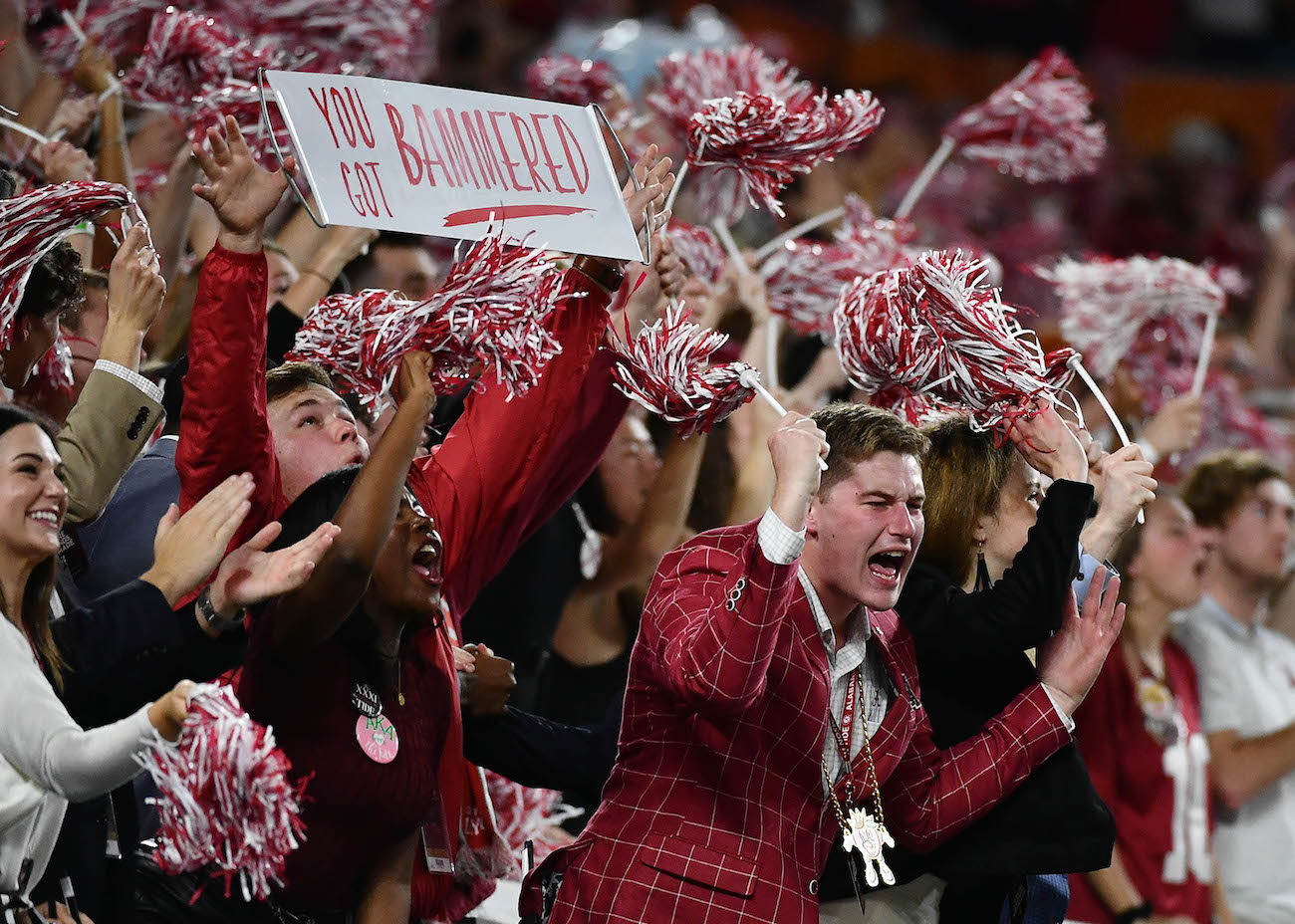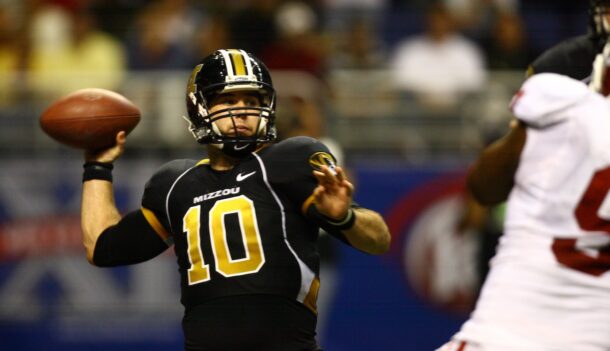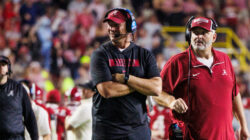
Fearing the worst with the SEC’s new in-stadium alcohol policy? Don’t be
Cheers, SEC fans.
Your team now has the ability to decide whether it wants to sell alcohol in general seating areas at your stadium. Crazy it is that it took until 2019 to get to this point, but as we know, things tend to move slowly in college football.
If you didn’t have a celebratory drink upon hearing that news out of the SEC Meetings in Destin, Fla. last week, perhaps you’re waiting to do so until the fall, when you can pay 8 times retail value for your favorite adult beverage (if they sell it).
This message isn’t for you, nor is it for the SEC fan who heard last week’s news and didn’t think anything of it. After all, the rest of the other Power 5 conferences already had the policy in place. That’s not even including the professional sports leagues, which have been selling alcohol in their stadiums longer than you or I have been alive.
The person who believes this new ruling won’t impact their lives in a positive or negative way can read another fine article on this here website. Y’all already get it.
The people who heard the news and immediately feared the worst? Yeah, you’re gonna need to go get mad about something else on the internet. Trust me. This isn’t worth your time. I know that all change is bad, but this change will be — dare I say it — not bad?
That’s not my way of saying everyone should have permission to be as reckless and drunkenly stupid in public as they please.
While I’m not trying to make light of the seriousness of binge drinking on college campuses — something that’s still a real issue across the country — give me a break with some of these comments:
https://twitter.com/SepaughW/status/1134600218417217536
Since Stuart is fluent in the language of sarcasm, here’s something that he’ll appreciate.
“Great idea because now everyone is going to drink for 12 hours instead of 9.”
Yeah, about that.
The person who drinks for 9 hours before the game and stumbles their way into the stadium is doing one of the following things upon arrival:
- A) Not staying through the halftime show
- B) Sneaking their own alcohol into the stadium
- C) Doing something to get themselves kicked out
- D) All of the above
If we’re being honest, this new policy isn’t really going to change anything about their behavior. Besides, no hard liquor is sold in general seating areas. It’s just beer and wine, and in case you haven’t seen, there are plenty of restrictions:
- Alcoholic beverages are to be sold and dispensed only at designated stationary locations
- Alcoholic beverages may not be sold by vendors within the seating areas
- Identification check is required at every point of sale to prevent sales to minors
- Alcoholic beverage sales are limited to beer and wine only (no hard liquor or mixed drinks may be sold in public seating areas)
- Limits must be established on the number of drinks purchased at one time by an individual
- Alcohol must be dispensed into cups
- Safe server training and additional training for staff to handle high risk situations is required
But upon reading that headline, that still prompted responses such as this one:
https://twitter.com/nickthompsonMO/status/1134549814417530880
Let me get this straight. The only reason Nick is standing here today is because Mizzou didn’t sell in-stadium beer when he was in school? Well, Nick must’ve been pretty rich in college to die from $8 beers. So has Nick or anyone else of that stance ever been to a professional sporting event and survived?
And look, I get it. The tailgate. That’s where the real drinking happens. I’ve been there, you’ve been there and probably both of your parents have been there.
But having alcohol sold in stadiums de-incentivizes the need to binge drink before games.
At places like Maryland, in-stadium ejections went down significantly after the school started to sell alcohol in general seating areas (61 in-stadium ejections in 2014 without alcohol, then down to 18 in Year 1 of the policy and 12 in Year 2, according to DBKNews.com).
A school like West Virginia, which in many ways served as the pilot program for the in-stadium alcohol policy, reported sharp declines in game-day incident reports and arrests.
The NCAA actually did a 2-year pilot program at Division I championship events and reported the following:
“The results of the pilot program over the previous two years have been favorable. The response from fans in attendance at the events has been positive. The reports of law enforcement incidents in conjunction with the championships have decreased, in some cases significantly.”
No, I’m not suggesting that selling alcohol in stadiums is going to take care of every idiot who decides to ruin somebody else’s experience. I hate to say it, but no policy is going to totally eliminate that.
But this notion that it’s going to completely change the in-stadium atmosphere is blown out of proportion. If these numbers of incidents were rising, don’t you think schools would be taking alcohol away instead of adding it?
And yes, schools are doing this to get that 7-figure payday (schools like Ohio State, Purdue and Texas already reported such figures). In 2018, college football attendance dropped to its lowest point in 22 years. The average attendance at SEC home games dropped 1.2%, which put it at its lowest point since 2003. As we know, that isn’t from a lack of interest in the sport with TV ratings better than ever.
That’s why the naysayers are pointing out the motives:
Say it all the time. This changes when you become a parent. We quit going to night games a long time ago because my little girl can only take so many drunk parking lot throwdowns and vomit.
— Ryan McGee (@ESPNMcGee) May 30, 2019
I like and respect Ryan and Peter a ton. Both are tremendous at what they do, and as parents of young kids, they have a totally different perspective than the one I have.
But Ryan said his family stopped going to night games “a long time ago” because of the atmosphere that alcohol helped create. That was in dry stadiums, and the atmosphere was too rowdy.
Why then, if the numbers support the decrease in stadium incidents with in-stadium alcohol sales, would a change like this not be seen as a potential positive? I understand that in theory more alcohol shouldn’t equal less problems, but maybe we’ve been too obtuse in our approach of this for too long.
I’m all for protecting the atmosphere at SEC games, and really college football games as a whole. If there’s an uptick in in-stadium ejections and arrests at SEC schools under this new policy, I’d be on board with going back to the old way of pretending that whiskey-loaded flasks and vodka-filled water bottles aren’t making their way into dry stadiums.
But I’ve been to enough sporting events — including the SEC Championship — to see that deciding to sell alcohol in general seating areas isn’t selling your soul to the devil.
Sooner or later, I bet the doubters will see that, too.
Connor O'Gara is the senior national columnist for Saturday Down South. He's a member of the Football Writers Association of America. After spending his entire life living in B1G country, he moved to the South in 2015.







